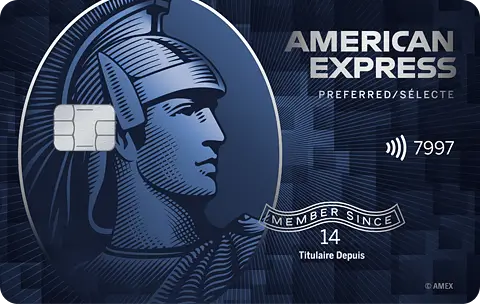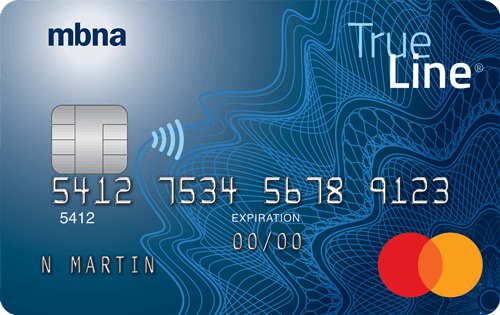How to book a long-term vacation rental
If you’re planning a long vacation, or you want to give the digital nomad thing a try, here’s how to choose a long-term rental on Airbnb and elsewhere.
Advertisement
If you’re planning a long vacation, or you want to give the digital nomad thing a try, here’s how to choose a long-term rental on Airbnb and elsewhere.

When my husband lost patience with Toronto winters, he talked me into our first vacation rental, a two-bedroom condo in Sarasota, Florida. I agreed, though I wouldn’t hear of leaving my home office and well-equipped kitchen for one day longer than a month. I was also pleasantly surprised to discover that by planning far ahead, we could transplant our whole lives someplace warmer—at a price we could afford.
Fourteen years later, we’re veterans of good-to-great long-term rentals in 25 cities and 10 countries. We’ve heard other travellers’ horror stories of grimy bathrooms, bait-and-switches and hidden charges, but there’s a red flag for every trip killer. To find the right properties, we’ve scrolled through thousands of listings on Airbnb and other platforms. Here’s the 14-point plan we wish we’d had for our first search.

Do you need a fenced yard for the kids? A bathroom with grab bars? We look for two bathrooms, parking, amenities within an easy walk, and a reasonable driving distance from Toronto. Because we travel with a dog, we also need green spaces nearby and a pet-friendly landlord, but we’ve found that at least two-thirds of listings do not accept pets. The more specific your needs, the more time you should allow for your search.
Nine months or a year ahead is not too soon for a long-term rental in a prime location, especially if your stay will overlap with March break. Desirable places are snapped up fast, and prices climb as supply dwindles.
Whether you’re using Airbnb or another platform, set the currency tab for Canadian dollars and see how far your money will go. Costs have soared everywhere we’ve checked in Florida. Priced out of a beloved neighbourhood in downtown St. Petersburg, we’re shifting our sights to southern Texas. We’ll take charm in Austin over a subdivision in St. Pete.
Many landlords offer a small discount for longer stays (as short as two weeks). Note the service fee charged by the platform. If you choose to return, this is roughly what you can save by booking directly with the landlord next time. Some are happy to bypass the platform to book a trusted guest rather than a first-timer.
Unless you have an in with a landlord, you’ll be searching established platforms such as Airbnb, TripAdvisor’s Flipkey or Expedia’s Vrbo. No need to check them all; they tend to post many of the same listings. Pick the one you find easiest on the eyes (in our case, Airbnb).
That eye-popping deal on Craigslist or Facebook might be pure fiction, spun with stolen photos. Don’t risk “renting” from these online marketplaces, where the “landlords” might stop responding as soon as you’ve transferred payment.
The big players have reputations to protect. Not only do their properties actually exist, but if what you find upon arrival is not what was promised, they will try to find a substitute (though perhaps a step down from what you booked). Protect yourself from nasty surprises: Don’t book until you’re satisfied that you can trust the landlord and know exactly what to expect.

Make it your first stop on every listing that catches your eye. Some landlords give you only 48 hours after booking to cancel with a full refund—a deal-breaker for us. We stick with landlords who offer full refunds up to one month ahead of the booked check-in date.
They’re your best defense against a choice you’ll regret. Guests will tell you what landlords won’t, about everything from neighbourhood safety and noise to the comfort, cleanliness and overall condition of the property. If the Wi-Fi is dodgy or the cutlery drawer contains just four of everything, someone will likely speak up. Of course, little things can go wrong with any rental. What counts is how quickly and cheerfully the landlord solved the problem.
Newly listed properties with no track record tend to cost less than five-star favourites, but we prefer to let beginners prove themselves on someone else’s dime (and vacation time).
Are you game for a month of climbing stairs to your front door? Is the kitchen so poky that you’ll blow your budget eating out? One appealing house we saw had neither a dining room table nor a desk—bad news for us with our two computers. We liked the price, though, so we set up one work station at the ample kitchen island and created another with a cheap desk and chairs, amortizing the cost over the three years we vacationed there. (The landlord was happy to leave the furniture in place—it allowed him to advertise a “dedicated workspace” on Airbnb.)

Join and get up to $1,400 in value including a first year annual fee rebate.

Earn 4% cash back on groceries and gas. Plus get a flat 2% on all other everyday purchases.

An ideal option for cardholders looking to manage debt, the card’s low 12.99% APR is almost half the conventional interest rate found on most cards.
MoneySense is an award-winning magazine, helping Canadians navigate money matters since 1999. Our editorial team of trained journalists works closely with leading personal finance experts in Canada. To help you find the best financial products, we compare the offerings from over 12 major institutions, including banks, credit unions and card issuers. Learn more about our advertising and trusted partners.
Does running out of milk mean hopping in the car? Is the house next door a wreck? Once you have the property’s address, which the landlord likely won’t provide until you book, do some preliminary exploring on Google Street View. Still, there’s no substitute for a look-see. After we booked a house in Victoria, my cousin—a lifelong resident—volunteered to drive over. On his advice, we cancelled the booking.
We’ve booked with property managers, but we’ve found that owners are more committed to guest satisfaction. Either way, you’re wise to message your key contact with a friendly question. If there’s no parking space provided, for example, you might ask about your prospects on the street. You’re not just gathering facts; you’re checking for a courteous response—and developing a relationship.
Many landlords have a no-parties rule or expect to approve any house guests in advance. The house rules may even state that they use video cameras to watch for unauthorized guests. If pets are allowed, expect to pay extra for the privilege—as little as $50 for an entire stay, but a head-spinning sum if the landlord is charging by the night. Never assume that your pet stays free. If no charge is mentioned, ask what you’ll pay.
I’ve seen a landlord require that guests pay for regular cleaning (well over USD$100, with tip, each time). Damage deposits are not uncommon—one more reason to make sure you’re dealing with a fair-minded landlord.
When it comes to cancellation, there’s no two-way street. Landlords can cancel your booking with a refund, but also with insufficient notice for you or your booking platform to find a similar and still affordable place. When a landlord sold the home we’d reserved in Jacksonville, we couldn’t find a comparable rental anywhere in Florida.
Turning a problem into a plus, we road-tripped to California and fell in love with San Diego. Flexible travellers have more fun, no matter where they’re checking in.
Share this article Share on Facebook Share on Twitter Share on Linkedin Share on Reddit Share on Email